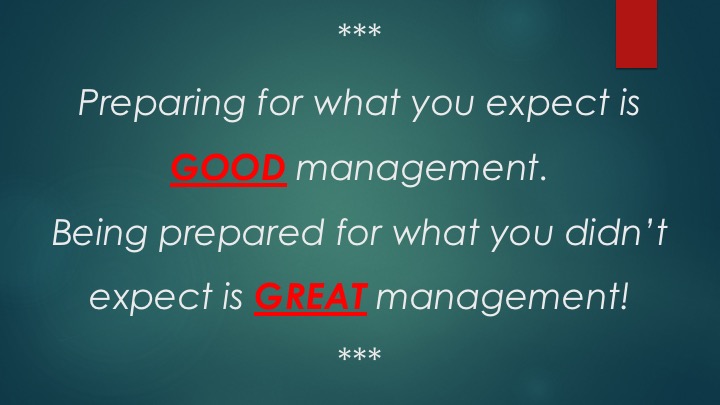How To Measure Your TBH (Total Business Health)

If you were asked to assess your Total Life Health the assessment might be made in three critical components: Mind/Body, Financial and Family. Anyone who’s ever gone through turmoil in any one of those three areas understands how linked they are to your true health picture. We all carry a general sense of what those are likely to be in the moment but the smarter among us won’t guess to fill in the blanks. An annual physical from a doctor will give us measurements on our body, when our mind is feeling challenged a professional opinion can make all the difference in rediscovering soundness. If you are lucky enough to have some money (or want to) you probably have a “guy” (or gal) who advises, after learning your needs and hopes. Goodness knows the health and happiness, or lack thereof, of our family and friends affects our life health as surely if the ails were our own. There is a clear parallel to business.
Self assessing is part of the obligation of every company’s leadership but just like we depend on professionals to help us assess our life health so to do we, if we are smart, have professionals help us assess our business health. Total Business Health® (TBH) is a process we use that is more like spending a couple of days at the Mayo Clinic as compared to an annual doctor’s visit–which some of us hardly do annually. Assessing our business can seem obvious from the bottom line view. Do we have money in the bank? Are we paying our bills? Are we growing? The obvious inquiries are certainly indispensable but a comprehensive look can change your perspective, alter your priorities and help better shape your goals.
3 Prongs of TBH
The three parts of business to analyze for TBH® that parallel our life health are Financial, Operational/Behaviors and Staff/Customers. Like your doctor’s EKG every business should have an expert opinion from an Accountant on the Balance Sheet and P&L for the business. These numbers should be given context and your Accountant should not only look at your year over year gains and losses but should also provide you context relative to your industry, your size, and, most important, your goals and budgets. Too many businesses and too many Accountants do not spend the time in conversation and review that they should. Your measurements are relative and, like your doctor, your financial professional has the knowledge to answer your inquiries, provided you make them.
The performance and well being of your staff and customers are always key. Many companies think they accomplish this with performance or comp reviews but if they are only backward or task-looking they miss half the opportunity. Knowing what will make an employee happy in their life and understanding how their job or career fits into that can make for a much better retention and performance management strategy but there’s a catch–you have to ask.
We’re often happy to have a customer that can pay the bill but their health and wealth can dictate future results beyond the invoice of the moment. Is your big client going broke? Are they getting so successful they won’t need you? Relationships with clients become key to many businesses and understanding their world beyond your interaction is not only good for your business health, it’s a fundamental value in sales and retention.
The third prong of this trident is understanding the connection between your operations and processes as well as your and your staff’s behaviors. You can look to optimize processes, be better at quality control or customer service or any of dozens of key performance indicators but every success is based on performing required behaviors. While motivation, attitude and skills and techniques seem basic to measure it is in the repetition, quantity and quality of effort toward those behaviors that will be most important to consistent and efficient positive outcomes.
Ultimately, your physical and mental health is likely strongly connected to your business or professional success. When one is bad you end with problems in both to address. Just as you shouldn’t be doing your own EKG analysis neither should you assess your business health on your own. Professional relationships with Accountants, Consultants, Trainers, Therapists and/or other support professionals are a mark of growing businesses. Having the discipline to do a check up on the areas discussed is analogous to diagnosing a lump or a spot…the earlier you discover it the greater your chance for a successful treatment strategy.
So find trusted advisors for your business just as you would your health. Measure and analyze together, review and plot strategy…and while we’re on the topic make an appointment for your annual checkup with your doctor too, especially if you stretch the term annual!
©2018 MyEurekaSolutions. For more BUSINESS THERAPY insights follow Tom here, on LinkedIn www.linkedin.com/in/tom-fox-a28b703/ or on Twitter @TomFoxTrainer.














